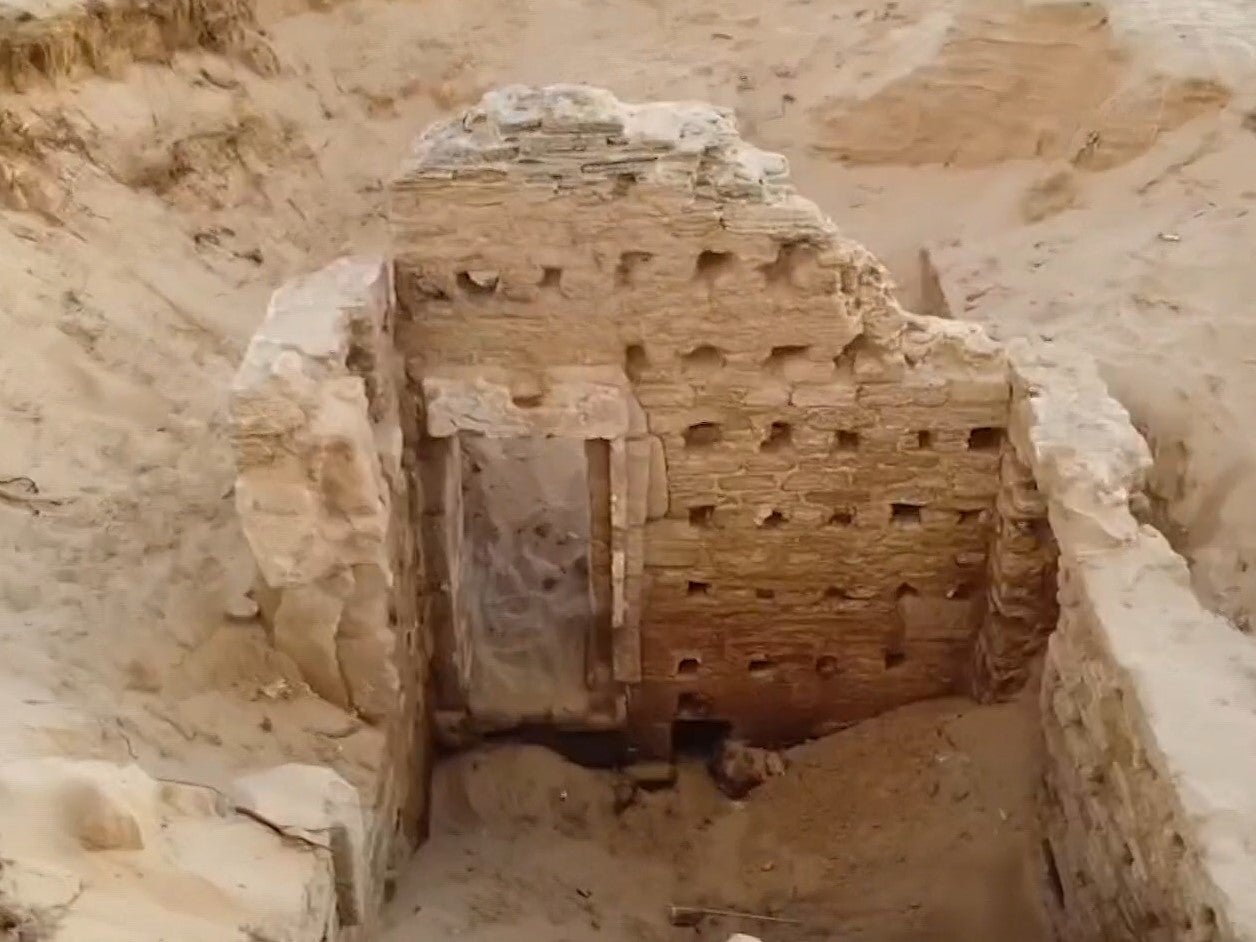Ancient Roman bath complex discovered beneath sand dunes in Spain
Remarkable find suggests small fishing village could have been more important to empire than previously thought

A highly-preserved ancient Roman bath complex has been discovered beneath the sand dunes of a Spanish beach.
The sprawling compound spreads across an estimated 2.5 acres close to the village of Canos de Meca in the southern Andalusia region. It includes multiple rooms complete with 13ft high wall, doors and windows all still intact.
Red, white and black stucco and marble were also discovered suggesting the baths would have been lavishly decorated.
Researchers with the University of Cadiz (UCA), who have led the dig, have called the find “exceptional” and estimate it dates back to the 5th century AD.
Now, the discovery could completely alter the way historians think about the area: the existence of such a large bathing complex suggests it may have been a far more significant post within the Roman Empire than has previously been thought.
Archaeologist Dario Bernal said the baths would have provided hygiene and leisure to the workers of the fish traps and salting factories in the area.
The find was part of the university’s Arqueostra project in which researchers hope to learn more about the production of fish products and sauces during the period of Roman occupation in the region.
Some medieval ceramics were also found nearby during the dig.
At a separate UCA excavation at nearby Cape Trafalgar, meanwhile, at least seven Roman salting pools – used to preserve food – were found, with depths ranging from 5 feet to 6.5 feet. Some remains of preserves were also found inside.
As well as the Roman artefacts, researchers also discovered an intact prehistoric tomb at the Cape Trafalgar site.
The university said the burial site was 4,000 years old and contained the remains of several individuals.
“It is wonderful,” Patricia del Pozo, Andalusia's culture minister, said, adding that the excavations showed that the region was “an incredibly attractive area for all types of civilizations, which endows us with incredible history”.
Join our commenting forum
Join thought-provoking conversations, follow other Independent readers and see their replies
Comments
Bookmark popover
Removed from bookmarks